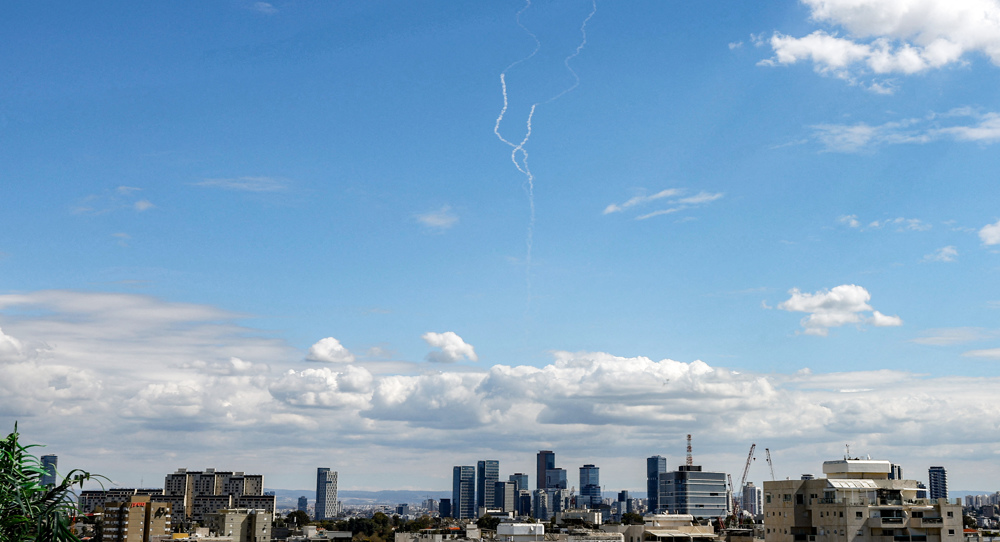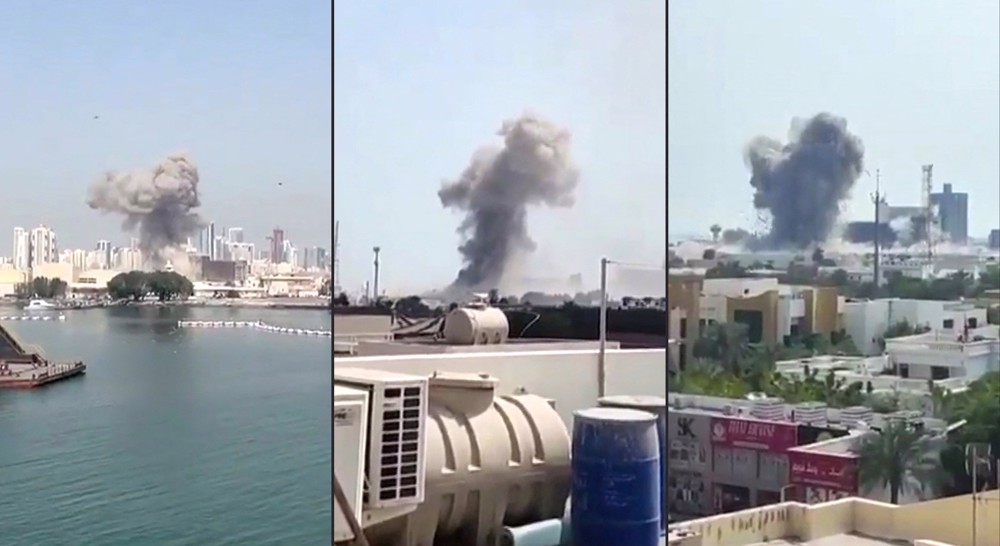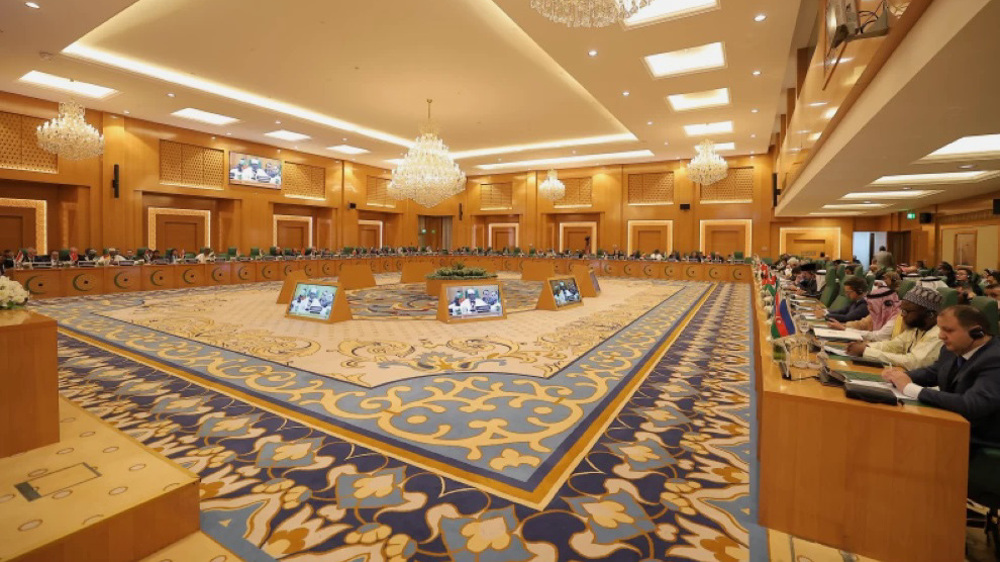US on its own in seeking to undermine Iran nuclear deal: Qassemi
Iran says the United States is in a minority of one in its destructive ambitions against the 2015 nuclear deal between the Islamic Republic and the P5+1 group, which includes the US itself.
Iranian Foreign Ministry Spokesman Bahram Qassemi made the remarks during a Monday press conference, saying, “The countries of the P5+1 group are not accompanying the US [in its] treacherous measures [against the nuclear deal].”
Iran and the five permanent members of the United Nations Security Council - the United States, Britain, France, China and Russia - plus Germany signed the Joint Comprehensive Plan of Action (JCPOA) on July 14, 2015 and started implementing it on January 16, 2016.
Under the agreement, limits were put on Iran’s nuclear activities in exchange for, among other things, the removal of all nuclear-related bans against the Islamic Republic.
The JCPOA has been hailed as a triumph for diplomacy, which has benefited all the contractual parties.
The US has, however, been toying with the idea of “tearing up” the accord or effecting changes to it, despite various international bodies, including the United Nations and the European Union, warning Washington could not do so as the agreement is a multilateral one.
“The JCPOA is a multilateral agreement,” Qassemi likewise said, adding, “We are aware of European countries’ positions [on it]. They are committed to the JCPOA …. China and Russia’s relevant position is [also] clear and transparent.”
He reminded that a meeting of the Joint Commission of the JCPOA, which gathers representatives of the signatories around the task for monitoring the accord’s implementation, had seen all the attendants pledging their present and future commitments to the pact. “Even the US, itself, announced this that it was committed to it (the JCPOA),” the official said.
Describing the JCPOA as a solid agreement, Qassemi said the US has not been able to undermine it, despite “its lack of commitment and obstruction against it.”
“Therefore, it cannot but take other measures to weaken it so it can deny Iran of [reaping] its benefits as much as it can or to spoil the [current] political atmosphere,” he added.
He was referring to Washington’s sanctions against Iran’s missile program, despite the program’s not constituting a violation of the accord.
Iran, though, is a self-sufficient and powerful country, which could move forward without reliance on others, he said, and noted, “This is a source of concern for the US.”
Qassemi expressed hope that US President Donald Trump would not put his country and people in trouble by seeking to act against the JCPOA.
Kuwait ties
On Iran-Kuwait ties, Qassemi said relations at an ambassadorial level will continue.
He said that on Thursday Iran’s ambassador to Kuwait met with Kuwaiti Foreign Ministry officials, who told him “it would be better” for the staffers at the Iranian diplomatic mission to reduce in number, and that the mission was advised to take action towards downsizing the workforce within a month and a half.
“This is contemptible,” Qassemi said, and reminded that Tehran reserved the right to counteract.
‘US can’t threaten Iran’
Asked about the arrest of a US citizen for espionage, Qassemi said that on July 16, the Iranian Judiciary announced that an individual spying for the United States had been arrested and sentenced to 10 years in prison in Iran.
Read more:
He was later identified as Xiyue Wang, a US citizen of Chinese descent.
Later, the White House warned Iran of “serious consequences” if it did not release all American citizens imprisoned in the country.
The Iranian spokesman said the US “cannot and should not” speak to Iran using a threatening language. “The era of threats is over,” he said, adding that some comments by US officials on the issue “amounted to interference in Iran’s domestic affairs.” “Such remarks will not have any bearing on Iran’s decisions and judicial system.”
“The Americans should change their language and discourse, and use some other language and diction in regard to the Iranian nation.”
Saudi vessel
On Friday, the Navy of Iran's Islamic Revolution Guards Corps (IRGC) seized a Saudi vessel after it trespassed on the country’s territorial waters in the Persian Gulf.
Read more:
Qassemi said it was natural for vessels to stray into foreign waters as a result of meteorological circumstances.
“This is partly natural and can be subjected to interaction and negotiation,” he said. Iran and Saudi Arabia do not have diplomatic relations, but occasionally reciprocate messages through other channels, Qassemi noted.
Riyadh cut its diplomatic ties with Iran in early 2016 after violent protests in front of its Iran-based diplomatic premises against its earlier execution of a leading Shia cleric.
Saudi Arabia lobbied for UAE sanctions: Trump
IRGC launches missile, drone strikes against Israel in response to US-Israeli aggression
IRGC pounds US bases across West Asia following US, Israeli aggression
VIDEO | Plan for US-pegged digital currency in Gaza raises sovereignty fears
OIC welcomes Oman-mediated Geneva talks between Iran, US; warns against use of force
VIDEO | Campaign to boycott Israeli ‘apartheid dates’ in UK intensifies during Ramadan
VIDEO | Pakistan launches Operation Ghazab lil-Haq after Afghan border firing
VIDEO | Pakistan condemns Israel’s expansionist agenda in Palestine at OIC













 This makes it easy to access the Press TV website
This makes it easy to access the Press TV website